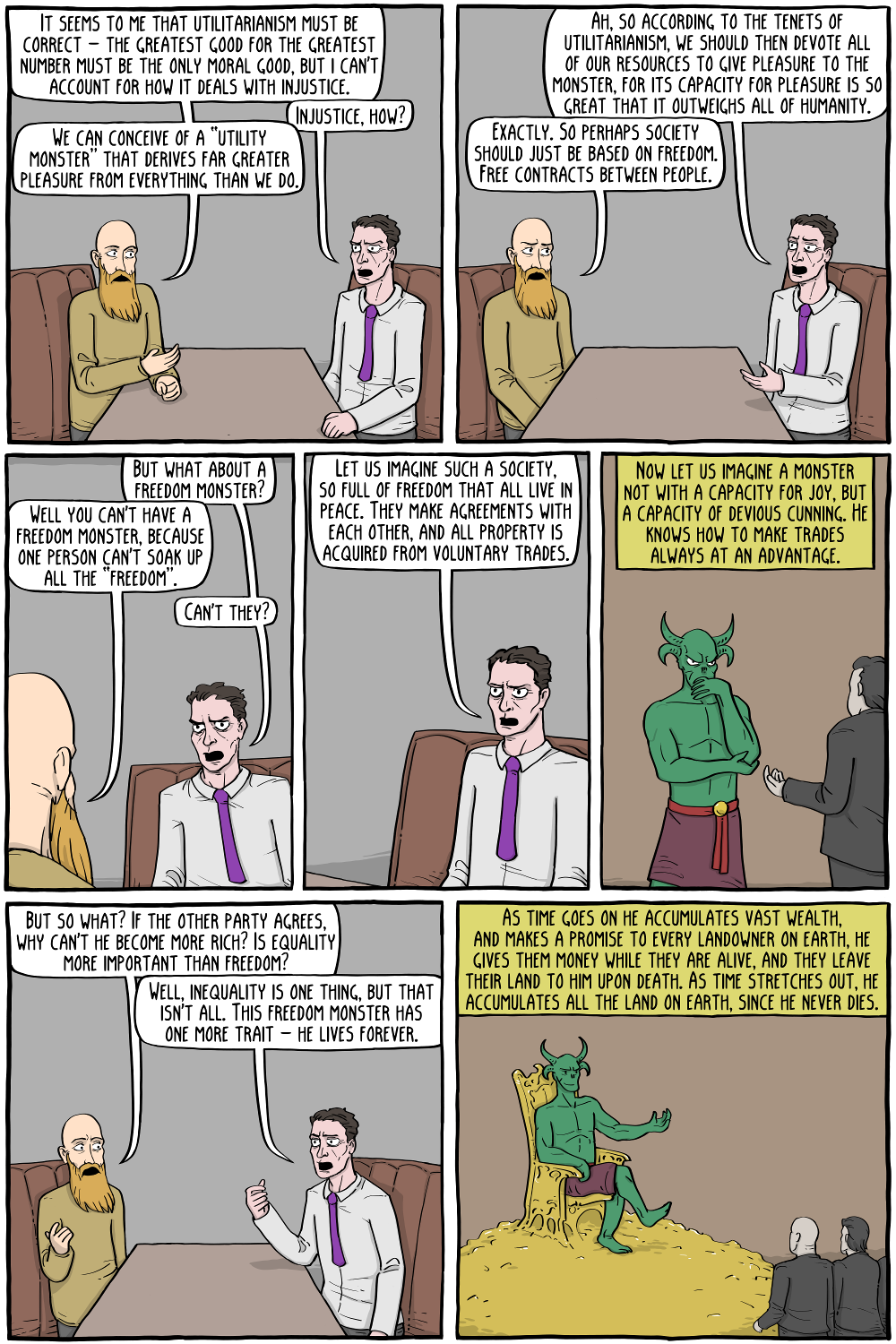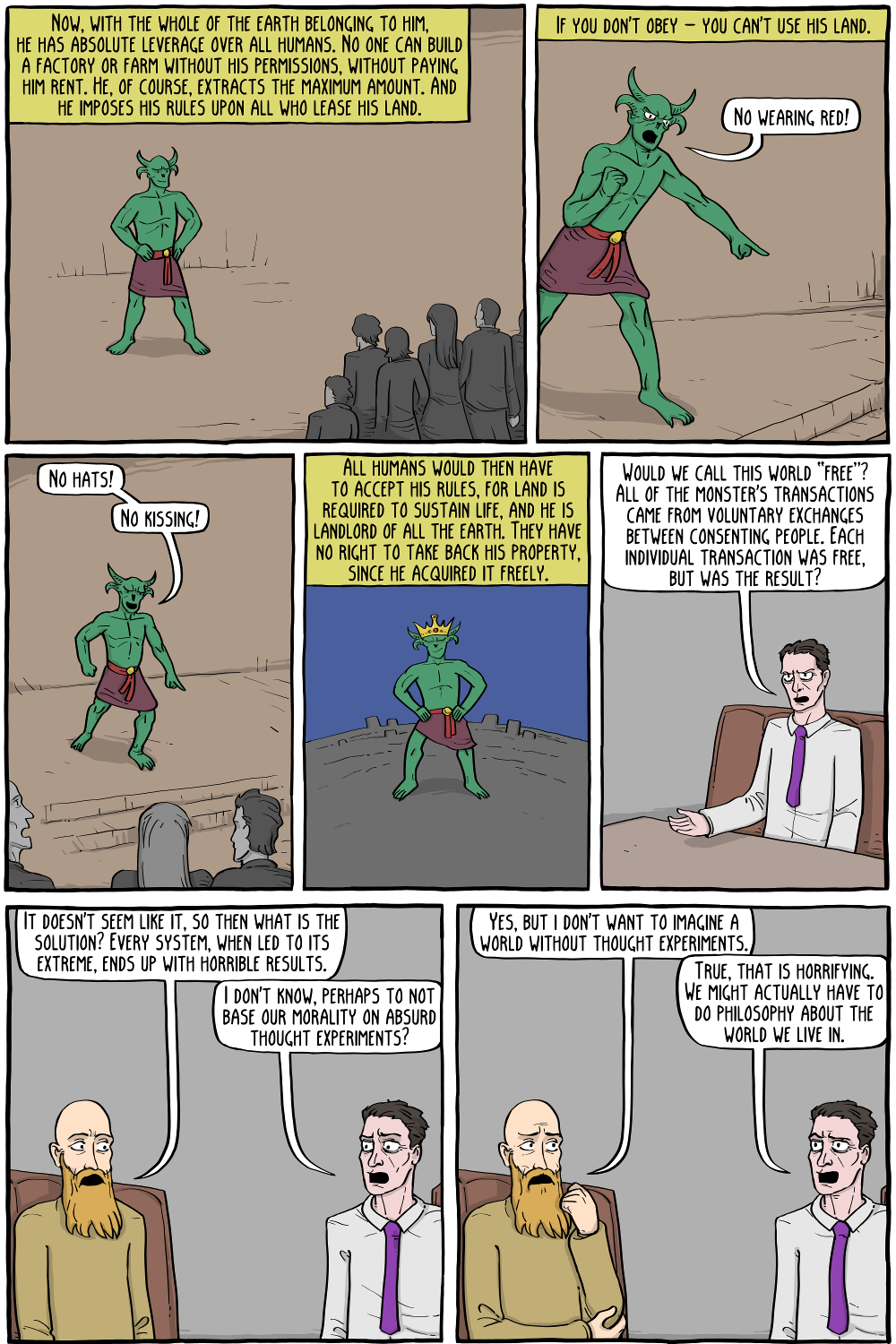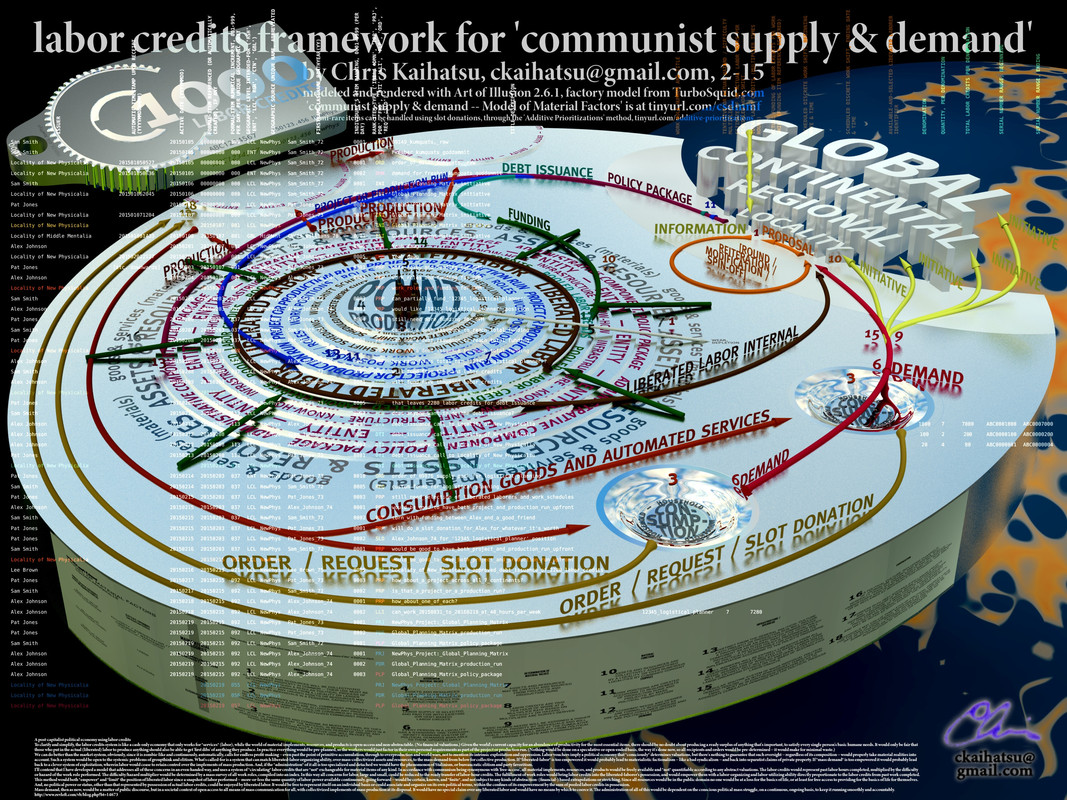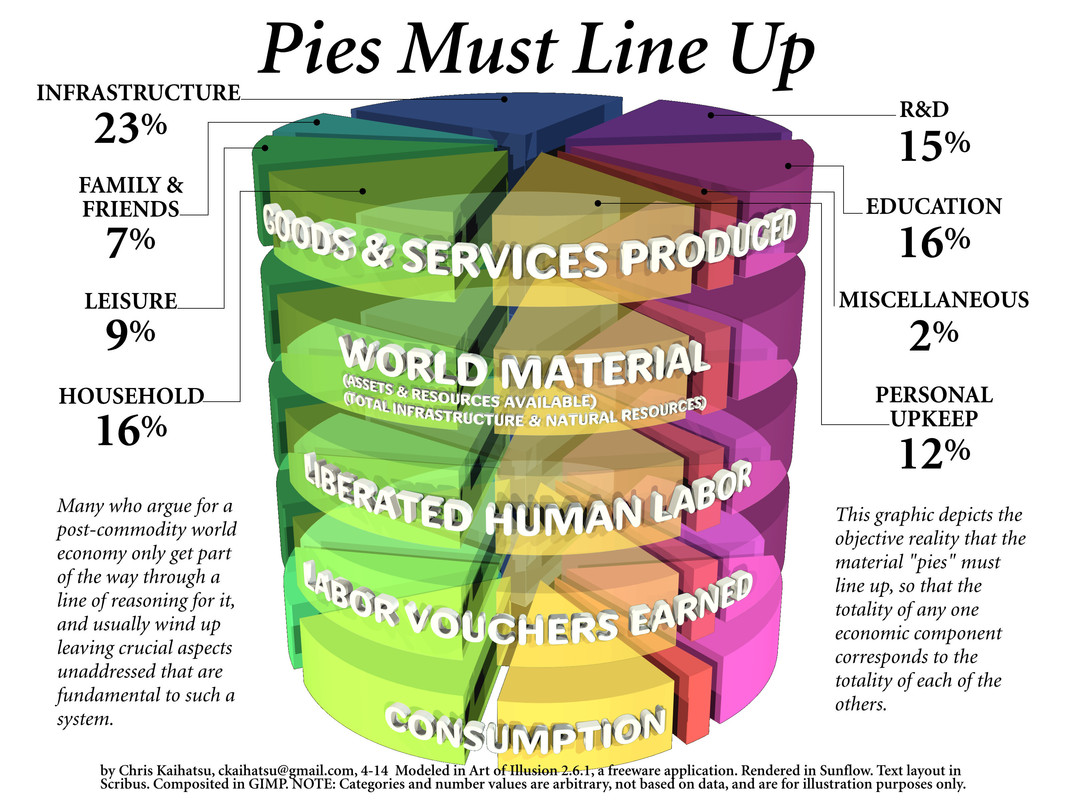Wellsy wrote:In fact, to make any opposition to private property tends to piss off those who consider a unregulated market an inherent and even foundational good from which all other things derive.
http://d-scholarship.pitt.edu/10867/1/VWills_ETD_2011.pdf
A free market is only possible if property rights do not abrogate liberty rights -- i.e., if they do not deprive anyone of anything they would otherwise have. So property in the fruits of one's labor does not violate others' rights, but property in human beings or in natural resources like land does.
Also the idea of how a free market economy would exist without some kind of hierarchy or authority seems peculiar as there will clearly be those who will amass wealth.
The type of market governs how participants amass wealth. In a capitalist market, privileges like land titles legally entitle their owners to steal from everyone else, so that is a good way to amass wealth. A free market does not admit of such privileges, and the only way to amass wealth is to convince other people that you are giving them more value in return. Some people are just good at salesmanship, and are reliably able to get the better of others in consensual trade (J.P. Morgan was said to be without peer in his ability to wring concessions from other businessmen).
Here is a funny comic for a view of utlitarianism which is ideologically derived from the basis of capitalist production in which value is boiled down to a single quantitative figure ie price.
http://existentialcomics.com/comic/259


As soon as your comic mentioned landowners, it ceased to be relevant to freedom or free markets.
In this example, the corporation outlives any single individual but amasses greater and greater wealth and assets.
In a free market, that can only be done by contributing value in return (or at least persuading others that you are doing so). Landowning and other privileges, by contrast, legally entitle their owners to just take from everyone else, and contribute nothing in return.
Which it then uses to supports itself through lobbying and other means to not only sustain itself but to destroy competition. The supposed balanced competition between capitalists whilst a real fact, isn't a static truth of a free market as the end result of super powerful corporations is a end consequence of such a system.
There are no historical examples of producers, whether individuals or firms, eliminating competition in the long run in the absence of privileges like patents, land titles, bank licenses, etc.
And really the functioning of a free market is simply the point about emphasizing the anarchistic production of capitalism where capitalist prouce things independently of one another and not in any coordination other than through the disciplining of price and profit.
Free markets are impossible under capitalism, as already explained.
Those who push this as a good do so in opposing restrictions for those who have more economic power to outcompete others ie the free trade vs protectionism debate, where for example where globalization was forced upon the power nations with weaker economies who went into debt and asked the world bank to give them a loan which was on the conditions of opening up their economies to larger national economies/corporations which then dominated those markets for their great profitability due to intense exploitation of cheap labor and little competition.
Again, that's nothing to do with free markets. Private US banks were privileged to issue the world's reserve currency. What could go wrong?
And the absolute lovers of the free market tend to be Austrian libertarian types who consider freedom to be equivalent to voluntary trade but like the bourgeoisie from the french revolution onwards, generalize the freedom and voluntariness of trade and contracts in an idealization that ignores the structure necessity of exploiting workers.
https://kapitalism101.wordpress.com/2011/09/30/marginal-futility-reflections-on-simon-clarkes-marx-marginalism-and-modern-sociology/
Of course Marx had nothing intelligent or rational to say on the subject, as he was unable to tell the difference between land and factories.
The best Austrian theorists can do is basically assert a faith in the rationality of the pricing mechanism of the free market being rational, they cannot demonstrate its rationality because the classical economics base their theorization on a generilzation of bartering between two individuals and don't actually explain the specificity of capitalist markets.
The best they can do to justify this point is not by the strength of their own arguments but by scaremongering about the problems of the state planned economies of the USSR.
Like Marx, they deny there is any essential difference between owning the fruits of one's labor and owning others' rights to liberty.
So no, free markets cannot exist without structural relations of private property that necessary deprive the mass of workers so that they only thing they fundamentally have to bring 'freely' to markets is their labour-power.
No, that's just self-contradictory nonsense. As soon as you forcibly remove people's rights to liberty and convert them into landowners' private property, you are self-evidently not talking about a free market. A market in which some people own and buy and sell others' rights to liberty is not a free market. It is a slave market.
But of course, the terms of negotiating their commodity is that they need it to reproduce themselves and survive at the bare minimum whilst the capitalist does not. A worker might have means of leveraging for a higher wage, but this doesn't negate the fundamental relation that necessitates a mass of people who have no means to subsist except through working for money.
Because their natural individual liberty right to use what nature provided to sustain themselves, as their ancestors did for millions of years, was forcibly removed and made over to landowners as their private property.
You can also go then into Marx's work further to explain how there is no way in capitalist that this can be escaped due to the nature of value and the need for the expansion of production in an attempt to outcompete other capitalists for profit/value. To do so they must explot the worker more by making them work for longer than the cost of their subsistence.
That is just absurd Marxist nonsense contrary to objective fact. It is not the employer who offers the worker access to economic opportunity he would not otherwise have who is exploiting the worker. It is the landowner, who forcibly
deprives the worker of access to economic opportunity he
would otherwise have. How do you contrive to prevent yourself from knowing such self-evident and indisputable facts of objective physical reality?













 - By Tainari88
- By Tainari88